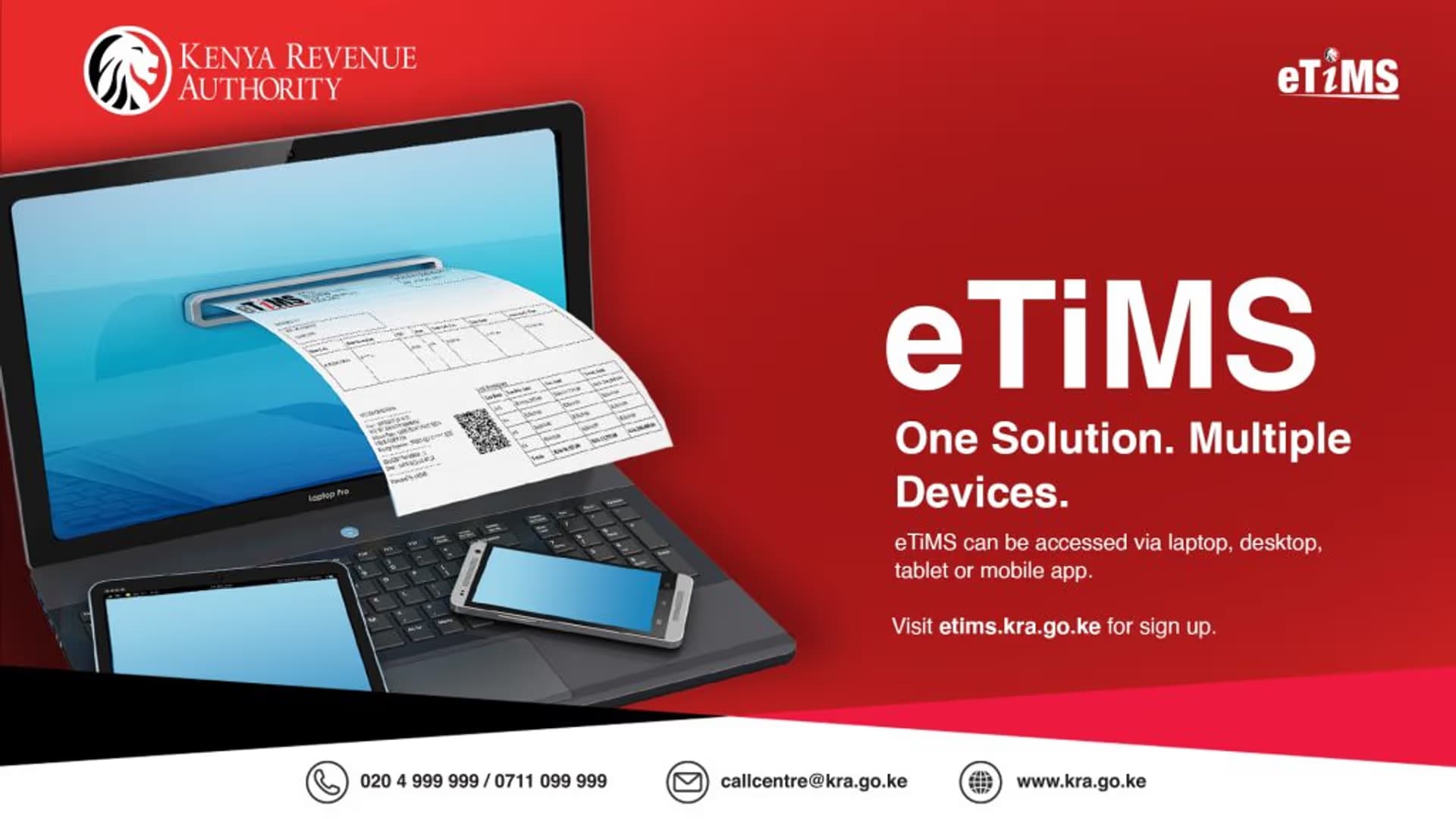We're loading the full news article for you. This includes the article content, images, author information, and related articles.
Businesses and entrepreneurs now face stricter hurdles in obtaining the crucial Tax Compliance Certificate, as the Kenya Revenue Authority mandates full integration with its electronic invoicing system to seal revenue leaks.

NAIROBI, KENYA – The Kenya Revenue Authority (KRA) has rolled out enhanced measures for the application of Tax Compliance Certificates (TCC), making compliance with the electronic Tax Invoice Management System (eTIMS) a mandatory prerequisite for most applicants. The move, announced in a public notice on Friday, October 24, 2025, is set to significantly impact businesses and individuals with income streams beyond regular employment, tightening the authority's grip on revenue collection and transparency.
A TCC is a vital document for individuals and companies, often required when applying for government tenders, seeking employment, renewing work permits, or obtaining various business licenses. Its issuance serves as official proof from the KRA that a taxpayer has filed all necessary returns and settled their tax liabilities. The certificates are valid for twelve months.
Under the new framework, all non-individual entities, such as companies and partnerships, and any individual earning business-related income must be registered and fully compliant with the eTIMS platform to qualify for a TCC. This directive aims to ensure that all transactions are captured electronically, providing the KRA with real-time data to verify tax declarations and combat evasion.
"The TCC application process will now include compliance with the electronic Tax Invoice Management System (eTIMS/TIMS) for non-individual entities and individuals with income other than employment income," the KRA stated in its official communication. This means businesses not yet onboarded onto the eTIMS platform will be automatically disqualified from receiving a compliance certificate until they meet this fundamental requirement.
Beyond eTIMS integration, the KRA has reinforced several other conditions for TCC applicants. Taxpayers must ensure they have filed all applicable tax returns and made payments on or before the stipulated due dates. Furthermore, any outstanding tax liabilities must be settled in full.
For those unable to clear their arrears at once, the KRA offers a provision to apply for a payment plan. "The payment plan, once approved, enables the taxpayer to continue with the self-service process of TCC application," the notice clarified. However, applicants with unapproved or defaulted payment arrangements will not be able to secure the certificate.
The authority also highlighted the necessity for complete compliance with Value Added Tax (VAT) regulations. This includes maintaining a clean record under the VAT Special Table, a measure that targets businesses linked to fraudulent activities or non-remitting suppliers, often referred to as 'missing trader' issues. Under these new rules, being associated with such irregularities could lead to non-compliance status, thereby blocking or delaying TCC approval.
These enhanced requirements represent a significant step in the KRA's broader strategy to leverage technology to widen the tax base and improve fiscal discipline. For businesses, particularly Small and Medium-sized Enterprises (SMEs), the changes necessitate a more vigilant and proactive approach to tax management. Full adoption of eTIMS and meticulous record-keeping are no longer optional but essential for uninterrupted business operations that depend on a valid TCC.
Tax experts suggest that while the measures will likely boost revenue collection and promote a more accountable business environment, they could also present initial challenges for some taxpayers. The KRA has acknowledged this possibility, stating that any difficulties faced during the implementation of the new system will be addressed on a case-by-case basis within the existing legal framework.
The application process for the TCC remains accessible through the self-service iTax platform. Taxpayers can also verify the authenticity of a certificate using the online Certificate Checker tool on the KRA portal. The authority has encouraged taxpayers with questions to utilize its contact centre, visit the nearest Tax Service Office, or seek assistance at Huduma Centres across the country.
This policy shift aligns with the KRA's increasing use of data and technology to monitor compliance and detect evasion. As the authority intensifies its enforcement operations, accurate income declaration and timely tax payment are more critical than ever to avoid penalties, which can include hefty fines and prosecution.
Keep the conversation in one place—threads here stay linked to the story and in the forums.
Sign in to start a discussion
Start a conversation about this story and keep it linked here.
Other hot threads
E-sports and Gaming Community in Kenya
Active 9 months ago
The Role of Technology in Modern Agriculture (AgriTech)
Active 9 months ago
Popular Recreational Activities Across Counties
Active 9 months ago
Investing in Youth Sports Development Programs
Active 9 months ago